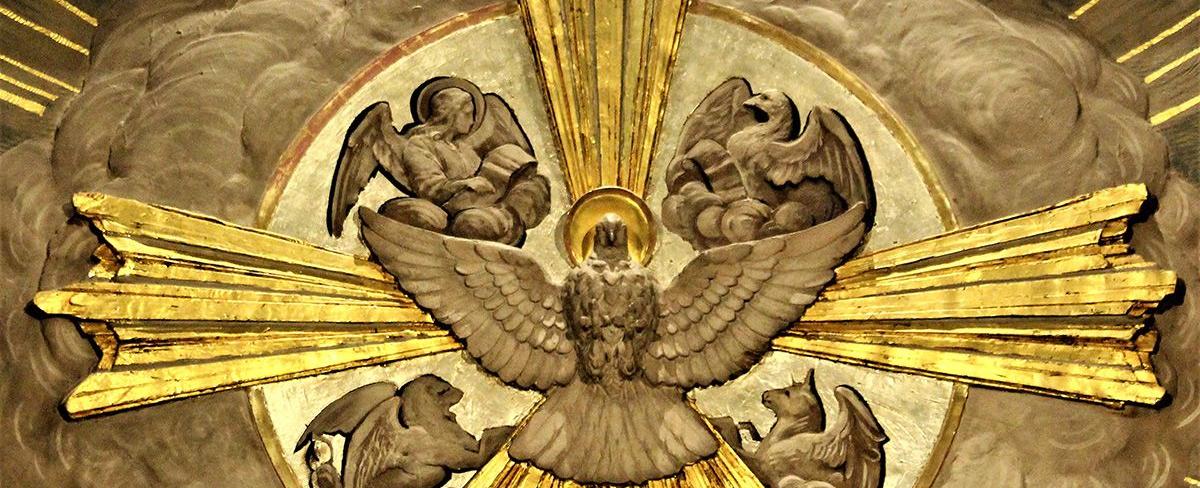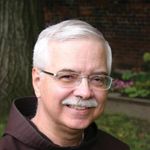Francis and the Holy Spirit

On May 28 this year, most Christians throughout the world will celebrate the feast of Pentecost, praising God for the gift of the Holy Spirit to the Church.
A beautiful liturgical prayer
One of the Church’s most beautiful liturgical prayers is the Pentecost Sequence (Veni, Sancte Spiritus), a Latin poem attributed to Stephen Langton, Archbishop of Canterbury, an older contemporary of St. Francis, who died in 1228.
After an invitation to come from heaven, the Holy Spirit is described as “the Father of the poor! Come, source of all our store! Come within our bosoms shine. You of comforters the best; You, the soul’s most welcome guest; Sweet refreshment here below.”
Perhaps no other prayer equals this entire text as an expression of God’s wildly generous providence for and compassion on all creation, especially human beings.
“Heal our wounds, our strength renew; On our dryness pour your dew; Wash the stain of guilt away. Bend the stubborn heart and will; Melt the frozen, warm the chill; Guide the steps that go astray.”
The text closes with:
“On the faithful who adore And confess you, evermore In your sevenfold gift descend. Give them virtue’s sure reward; Give them your salvation, Lord; Give them joys that never end. Amen. Alleluia.”
The Holy Spirit–the Order’s true minister general
This lyrical text would certainly have appealed to St. Francis, who wanted to insert into the Rule of 1223 that the Holy Spirit is the true minister general of the Order. The time to do that officially had unfortunately already passed (2C 193).
According to Optatus van Asseldonk in the Dizionario Francescano, St. Francis uses the term “Holy Spirit” 38 times in his writings, almost always in a Trinitarian context. The Capuchin scholar notes that Francis saw God’s creative, redeeming, and saving action as a common work of the three Persons, under the leadership of God the Father. This is eloquently expressed in Chapter 23 of the Rule of 1221.
The Holy Spirit always promotes unity and peace. In Admonition 8, Francis quotes St. Paul:
“‘No one can say Jesus is Lord, except in the Holy Spirit; and There is not one who does good, not even one.’”
Francis continues:
“Therefore, whoever envies his brother the good that the Lord says or does in him incurs a sin of blasphemy because he envies the Most High Himself Who says and does every good thing.”
In the Salutation of the Virtues, Francis prays:
“Most holy Virtues, may the Lord protect all of You from Whom You come and proceed. There is surely no one in the whole world who can possess any one of You without dying first.”
The Holy Spirit is an essential component of the “great humility” of service praised at the conclusion of the Canticle of the Creatures.
Francis urged the friars to announce with God’s blessing:
“Fear and honor, praise and bless, give thanks and adore, the Lord God Almighty in Trinity and in Unity, Father, Son, and Holy Spirit, the Creator of All” (Rule of 1221, Chapter 21).
Open to the grace of the Holy Spirit
In a world where many of the Catholic Church’s fiercest critics were sure that they represented the Holy Spirit’s critique of that Church in the thirteenth century, Francis and his most authentic followers were open to the grace of the Holy Spirit and resisted the temptation to examine everyone else’s conscience on the basis of what they thought the Holy Spirit was telling them.

“Francis, Man of the Spirit” was the title of a series of conferences that the late Ignatius Brady, OFM, gave to the provincial ministers of Italy in 1976 on the 700th anniversary of the death of St. Francis.
Veni, Creator Spiritus has no specific Franciscan connection beyond the fact that its author died four years after the Friars Minor arrived in England, where they quickly established communities in London, Canterbury, and Oxford—that country’s political, religious, and intellectual centers.
Among the various English translations, the one I like best is in the Roman Missal.
-----
Main image: At an altar in the Franciscan Monastery of the Holy Land in Washington, D.C., the Holy Spirit is shown as the inspiration for the four Evangelists, represented by their traditional symbols. Photo by Greg Friedman, OFM.
Pat McCloskey, OFM
Editor of St. Anthony Messenger
Pat McCloskey, OFM, Franciscan editor of St. Anthony Messenger, has an MA in Franciscan studies. Peace and Good: Through the Year with Francis of Assisi (Franciscan Media) is his latest book.

